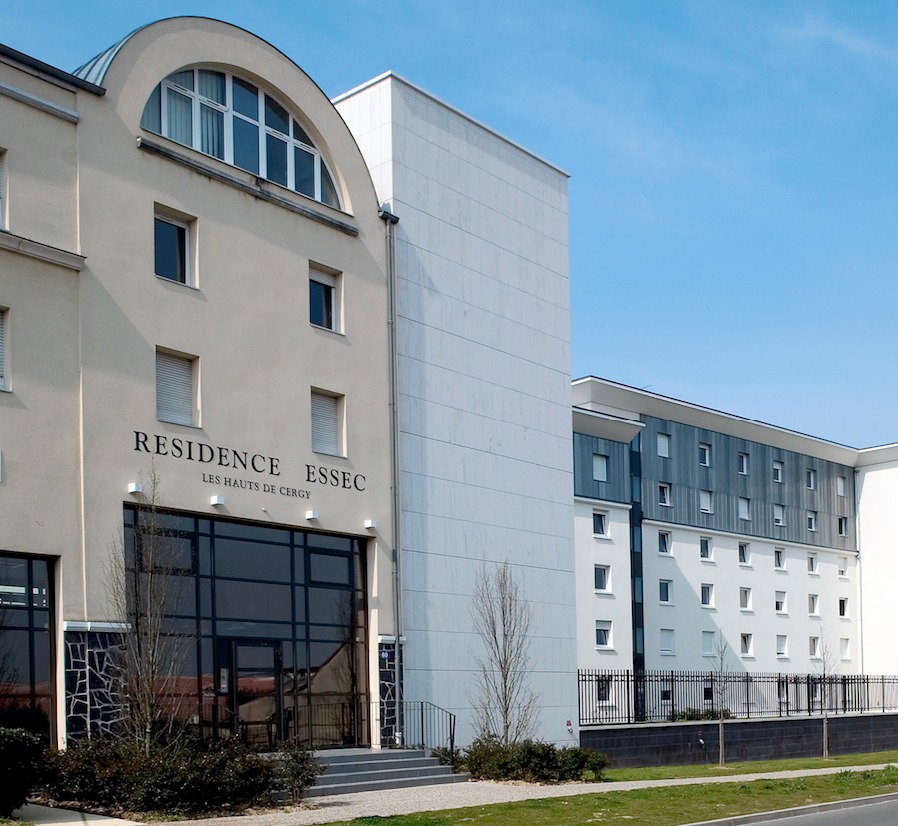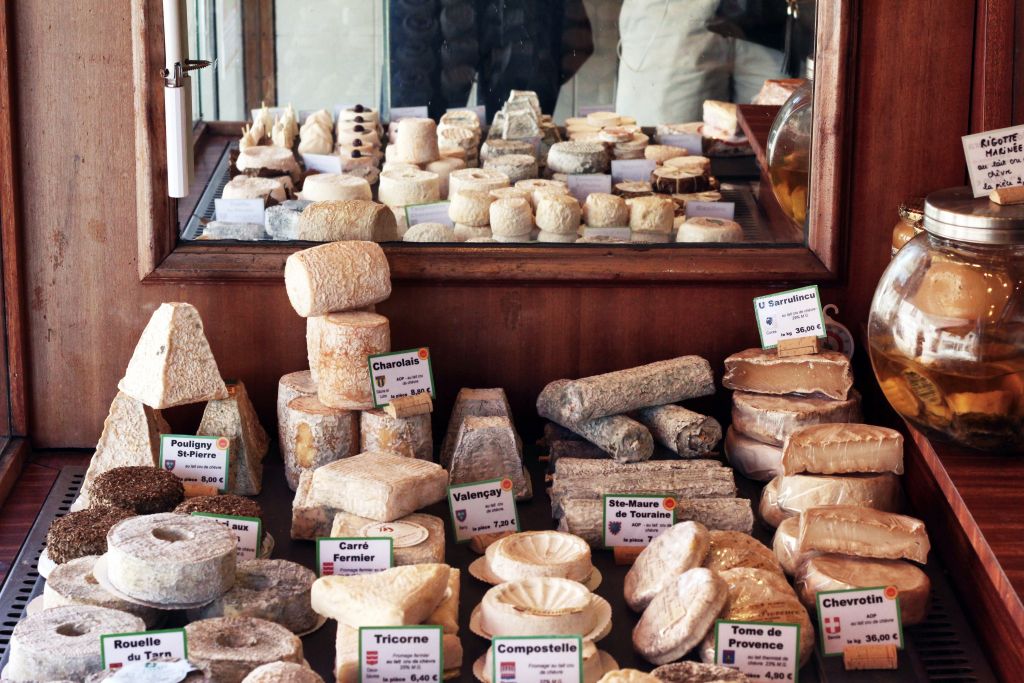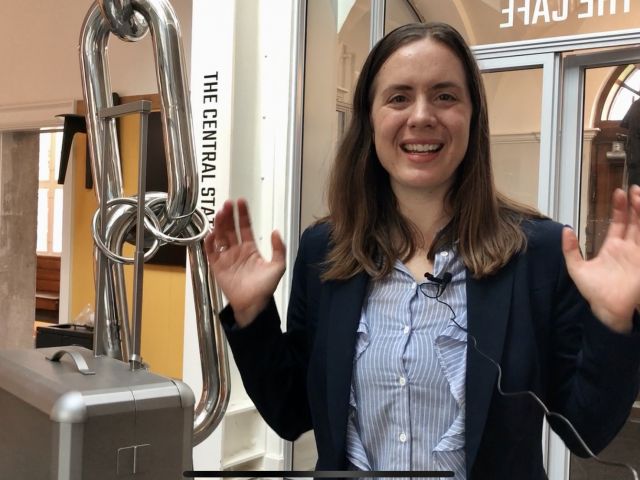This is how I live in France

(Photo by Desislava Diyanova Grozeva)
Moving to another country is not always an easy job. However, my host university- ESSEC Business School has really put in significant efforts to help us make the transition from our home university to living abroad in France.
From sending numerous information emails to having Zoom meetings where we could ask questions about the residence we are going to be living in- it seems like ESSEC has figured it all out.
However, there were some things I wasn’t prepared for- here there are!
The student residence
Before coming to France, I had to carefully consider if I wanted to live in Paris and commute an hour every day to university or if I wanted to live in Cergy (the town where ESSEC is situated) and commute no more than 15-20 minutes.
After looking at prices at some Paris rooms and apartments I decided that it would be smarter to go for the student residence as that will allow me to have an apartment of my own and not deal with any annoying roommates.
Thankfully, I was lucky enough to get a room at the biggest ESSEC student residence not long after I applied in June.

(Photo by Desislava Diyanova Grozeva)
My first impression when I first entered the room is that it was significantly more spacious than standard dormitories in Copenhagen, which came as a relief. The room was already furnished, clean, but I couldn’t help but notice that the fridge, the stoves and the radiator were quite old, dusty and rusty. Nothing that half a day of cleaning can’t fix!
Overall, I was pleasantly surprised by the room, as well as by the noise isolation and the fast-responding staff in case something gets broken or stops working.
Cheap vs Expensive
Something that should come as no surprise is that food in France is significantly (between 20% and 50%) cheaper than Copenhagen. Fruits, vegetables, bread, cheese, charcuterie- is more often than not locally sourced, cheaper and better quality than what I am so used to in Denmark.
I cannot mention cheese and bread without mentioning wine!
Even in our local supermarket there are more than 100 different wines (no joke) and I have currently tried only 3 (there is only so much wine a 22 year old can drink) and they are cheaper, better quality, more flavorful and are full-bodied compared to even the most expensive wines you can buy in a local supermarket of the same size in Copenhagen.

(Photo by Desislava Diyanova Grozeva)
Speaking of drinks- coffee, tea, soda and all other types of drinks are also significantly cheaper than Copenhagen. I found it funny that the most expensive coffee places that I visited in Paris (like the one on the Champs-Élysées) is still a few Danish kroners cheaper than let’s say Espresso House in Copenhagen.
While it is true that France has a lower cost of living compared to Denmark, there are some things that are more expensive and harder to come across than they are in my beloved home Denmark.
One example are dairy substitutes, like for example almond milk, coconut milk, soymilk, etc. They are around 5-10% more expensive and they are truly hard to come across because the supply is very limited (at least at my local supermarket). However, in Copenhagen, even in the smallest Nettos you can find at least 5 different non-dairy milk alternatives, tofu, nutritional yeast, etc.
In my opinion, these products don’t have a large market in France and that is why they often get overlooked and undersupplied.
Another thing that caught my attention is that bio products in France are significantly more expensive compared to bio products in Copenhagen and sometimes it can be hard to find “odd” products like hummus, Asian nuts, etc.
Overall, food and beverages are of significantly better quality, locally sourced and more flavorful than the ones in Copenhagen, but if you have specific dietary requirements, for example you are vegan or gluten free and you would like to find dairy or meat replacements- it can be a challenge.
Finally, let’s talk about the obvious
If there is one thing that shocked me when I first landed in France- that was the fact that everyone was wearing masks everywhere.
Although I understand the importance of wearing a mask and keeping a safe distance, I don’t feel the need to be constantly and consistently reminded by billboards, announcements, stickers, leaflets, warning signs, and even security guards who spray disinfectant gel on your hands every time you enter a shop.
I am all for respecting the government safety regulations and abiding by the WHO advice, but being constantly reminded is a bit depressing and overwhelming.
In the span of only a few days I had to adopt the habit of remembering to put on my mask before going out, washing it with hot water and soap after I come home and trying to survive in a mask when it is 30 degrees outside.

(Photo by Desislava Diyanova Grozeva)
Apart from the obvious discomfort that comes with wearing masks, I also had a hard time understanding what people wanted to say, especially when they speak very quietly in French and their face is covered with a mask. Because the difference between an innocent joke and an insult can be a smile.
I love speaking with people and the face mask is still a challenge I am trying to overcome when having a conversation.
In conclusion
In conclusion living in France is definitely a dream come true and I am more than grateful to have been given the opportunity to plunge into another culture, to taste different flavors and to gain international experience.




































































































































Comments